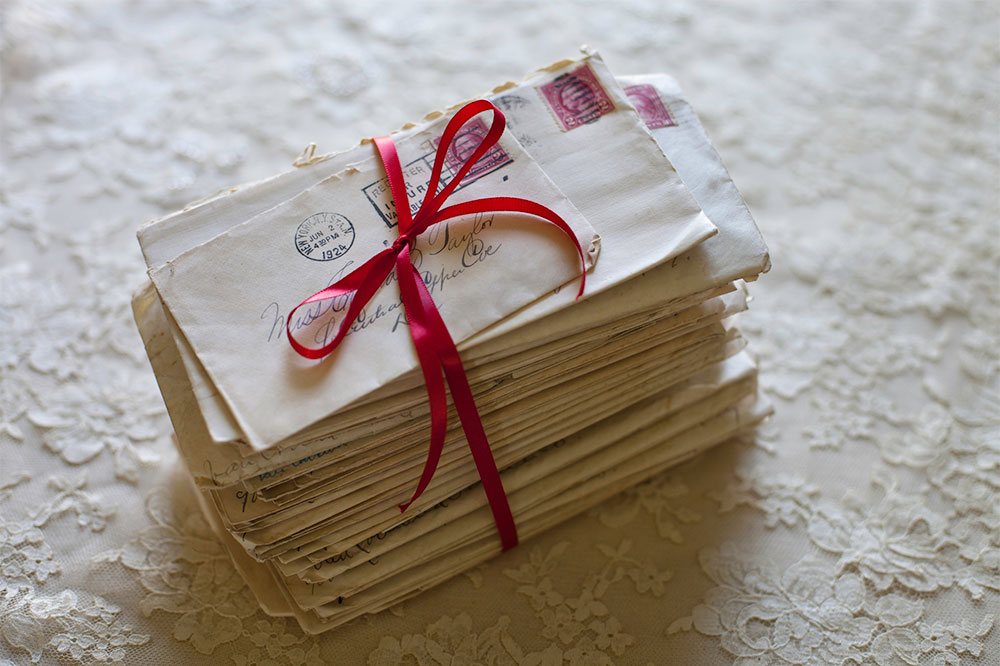It’s amazing how quickly you become ancient history. Thirty years after I left Oxford, my old college, Magdalen – alma mater of Oscar Wilde, Edward VIII and my fellow undergraduate George Osborne – sent out a request to former students. The college archivist asked for ‘Academic work. Records of student societies. College magazines and newsletters. Posters and programmes. Menus and tickets. We need them.’
Hard-copy memories have been increasingly replaced by digital records, as the British Library has discovered to its cost. It has just suffered a ransomware attack, paralysing its online systems. The library’s curator of digital publications, Giulia Carla Rossi, is concerned about the fragility of digital publications.
So I looked around in my own ‘archive’ – the top shelf of the wardrobe in my spare room – and bingo! I had stumbled upon a lost world of the pre-digital Oxford undergraduate, now as dead as the forlorn dodo in the Oxford Museum of Natural History.
In that wardrobe, I found two collapsing cardboard wineboxes. They contained everything the archivist could want: from the Elvis posters on the walls of my first-year room, to angry letters from my Greek poetry tutor, right down to old cheque stubs for my astonishingly cheap battels – Oxford’s word for accommodation and food bills.
If Proust got a hit of nostalgia from eating a small cake, I overdosed on long-forgotten memories as I leafed through the boxes. Nostalgia in Greek means ‘pain in going back’. And there was plenty of pain in flicking through my archives.
The first girl I’d kissed, on my last evening at Westminster School in 1988, sent me this note in college. She wrote: ‘Harry sweetheart. 1 p.m. possible for you? Hope to see you then. Pizza Express is a brilliant idea. With love N.’ Before I opened Pandora’s cardboard boxes, I could remember the kiss of course. But I’d completely forgotten she’d sent me that note.
Did I pursue her, like any red-blooded 18-year-old would have? Of course I bloody didn’t, given that I was a neurotic, nervous nerd, still putting Homer before girls. We had the Pizza Express lunch but there were no more kisses.
Mine was the last letter-writing generation. By the time I left Oxford in 1993, there was a college computer room in an out-of-the-way archway, where a few progressive students typed up their essays or job applications; most of us wrote everything by hand. I’ve donated my essays to the college, too, much to the consternation of my old philosophy tutor.
There was no internet; there were no mobile phones – the few college payphones were barely used. Instead, we wrote thousands of notes, sent by pigeon post (an inter-college postal system) or nailed to each other’s doors.
A Magdalen friend has a father who is a Cambridge professor, who was himself at Magdalen in the mid-1950s. He told her our time at Oxford was much more similar to his, 35 years earlier, than ours is to today’s undergraduates. We thought we were cutting-edge because we wore tracksuit bottoms and T-shirts – but, in our day-to-day existence, we were leading a life that Evelyn Waugh would have recognised.
Everyone – women included – was much more robust and jokey about sex. One gay undergraduate at Jesus College sent a dual birthday party invitation: one, for girls and gay men, with a picture of a naked man from the back, saying, ‘So get your knickers off and join him/her for a light tipple’; another, for straight men, with a picture of a woman in a skimpy leather dress, saying: ‘Prepare to be seduced.’ He sent me both versions, which I discovered in my archive.
On 14 February 1990, I received a joint Valentine’s card from two girls, saying: ‘What about a ménage à trois in your batchelor [sic] pad darlin’? We’d love to get you between these luscious lips of ours!’
The digital revolution came shortly after we left. Going through my archive, it made me realise that Britain used to be a lot freer. Too free, sometimes. At the Freshers’ Fair, in my first week, I picked up a flyer from the Oxford University Pistol Club, offering: ‘All the necessary equipment (though ammunition has to be paid for): the use of a variety of guns from a .22 calibre single shot to a .44 Magnum Revolver (Dirty Harry style!).’ The 1996 Dunblane tragedy changed all that.
As I flicked through my archive for the last time before I gave it to Magdalen, I saw an analogue, innocent era, lost for ever. How glad I am I grew up in the old world.






Comments